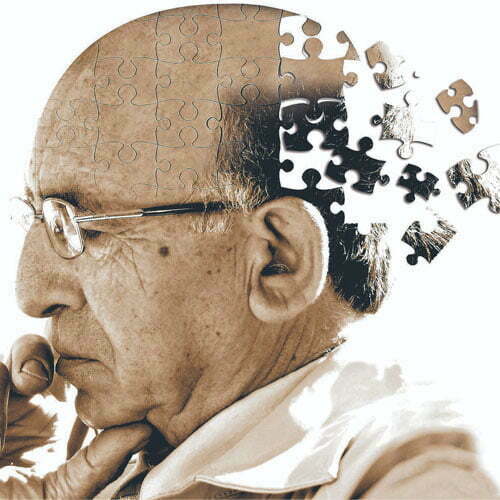It has been called “historic” that the first drug to slow the brain damage caused by Alzheimer’s has been made.
The scientific discovery puts a stop to decades of futility and demonstrates that new medication development for Alzheimer’s, the most prevalent type of dementia, is feasible.
Lecanemab, however, has a negligible impact on people’s everyday lives, and its relevance is up for question.
Without a breakthrough in illness detection, most people would lose out on the drug’s benefits because it only acts in the early stages of the disease.
Lecanemab targets the beta-amyloid, a sticky gunge that accumulates in Alzheimer’s patient’s brains.
Some view the outcomes of this research as a successful turning point in a medical sector plagued with failures, sorrow, and disappointment.
The results, according to Alzheimer’s Research UK, were “momentous.”
Prof. John Hardy, one of the pioneering scientists who proposed the notion of focusing on amyloid 30 years ago, called it “historic” and expressed hope that “Alzheimer’s medicines are starting to emerge.” We’ve had a 100% failure rate for a very long time, so the results are “a major thing,” according to Prof. Tara Spires-Jones of the University of Edinburgh.
Will Alzheimer’s medicine change anything? Your queries are addressed
What alterations in way of life can reduce the risk of dementia?
Other medications are now prescribed to Alzheimer’s patients to assist manage their symptoms, but none of them alter the course of the illness.
Lecanemab is a designed antibody that instructs the immune system to remove amyloid from the brain. Antibodies are made by the body to combat viruses and germs.
One of the distinguishing features of Alzheimer’s is the formation of amyloid plaques, which are formed when the protein amyloid collects in the gaps between neurons in the brain.
A total of 1,795 individuals with early-stage Alzheimer’s participated in the extensive experiment. Every two weeks, lecanemab infusions were administered.
The findings, which were presented at the Clinical Trials on Alzheimer’s Disease conference in San Francisco and reported in the New England Journal of Medicine, do not represent a magical treatment. Although the illness continued to sap people’s mental capacity, the 18 months of therapy decreased that loss by around a fifth.
Regulators in the US are already reviewing the data and will make a decision shortly on whether lecanemab can be used more widely. Next year, the developers—the pharmaceutical firms Eisai and Biogen—plan to start the approval procedure in other nations.


David Essam, a 78-year-old British citizen from Kent, took part in the worldwide trial.
Since of his Alzheimer’s, he was forced to stop working as a joiner because he was no longer able to recall how to assemble a cabinet or operate his equipment. Since he can’t read a clock face, he now wears a digital watch.
His wife Cheryl remarked, “He’s not the man he was. He requires help with most things, and his memory is generally nearly nonexistent. She did, however, claim that the trial had given the family hope.
It’s simply an awful, ugly thing, said David, and if someone can slow it down and finally stop it altogether, that would be fantastic.
David is one of more than 55 million individuals across the world who have Alzheimer’s disease, and by 2050, that figure is expected to rise to more than 139 million.
Will it change anything?
Regarding the effects of lecanemab in the “real world,” scientists and medical professionals disagree.
Using a person’s assessments of their symptoms, the drug’s slower decrease was discovered. The scale has 18 points and ranges from normal to severe dementia. Those who received the medication fared 0.45 points better.
That had a “modest effect” on the illness, according to Prof. Spires-Jones, but “even if it is not dramatic, I would accept it.”
It had a “small impact… but it provides us a little bit of a footing,” according to Dr. Susan Kohlhaas from Alzheimer’s Research UK, and the subsequent generation of medications would be superior.
There are dangers as well. Brain scans revealed a potential for brain bleeding (17%) and brain edema (13%). 7% of those who received the medication as a whole had to quit due to adverse effects.
What happens after the 18-month experiment is a vital subject, and the solutions are still up for debate.
Patients at North Bristol NHS Trust are seen by Dr. Elizabeth Coulthard, who claims that once moderate cognitive impairment begins, people can live independently for an average of six years.
She argues that if the decrease is slowed by 25%, it may translate to an additional 19 months of independent living, “but we don’t know that yet.”
Even from a scientific perspective, it is conceivable that lengthier studies may yield larger results. Dr. Kohlhass says, “I don’t think we can presume that this is it.
The question of whether the healthcare system is prepared to utilize treatments that actually change the course of the disease is raised by the development of new medications.
While most patients who are referred to memory services are in the latter stages of the disease, early treatment is necessary to prevent too much brain damage.
In order to ascertain whether someone has Alzheimer’s disease or another kind of dementia, it is necessary for patients to come forward when they first notice memory issues and for clinicians to be able to refer them for amyloid testing, such as brain scans or spinal fluid analyses. Only 1-2 percent of persons with dementia now get these testing.
More than 850,000 individuals in the UK, according to the Alzheimer’s Society, have dementia of some kind. Though testing would be necessary for everyone, more than half have Alzheimer’s.
According to Dr. Coulthard, “there is a huge gap between present service provision and what we need to do to give disease-modifying medications.”
She said that at the moment, only people who pay privately or live close to major medical facilities are likely to gain.
Researchers emphasized that amyloid should not be the exclusive focus of treatments because it is simply one component of the complicated picture of Alzheimer’s disease.
Another hazardous protein called tau is present in areas of the disease where brain cells are actually dying, and the immune system and inflammation play a significant role in the illness.
Prof. Spires-Jones declared, “That’s where I would invest my money.”
“I’m quite thrilled,” she continued. “We should have something that will make a significant impact in a decade or so. We’re on the verge of understanding enough to have a handle on the problem.”
As the “greatest health catastrophe we face in the UK,” Kate Lee, chief executive of the Alzheimer’s Society charity, asked for a 10-year government policy on dementia.
She said that Lecanemab wouldn’t have a “big impact” on people who already have dementia in an interview with Radio 4’s Today program.
She did, however, add that it ought to “make a tremendous impact” for coming generations.












